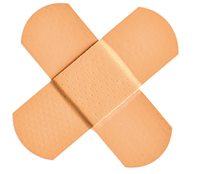You’ve gotten your jab in the arm, so what can you expect? now?
By Sean Delaney
The battle against the COVID-19 pandemic is ramping up, and vaccine availability continues to expand in Toronto, and the rest of Canada. With many of us now taking the first available appointment in an attempt to expand the numbers of those protected against the virus, we wanted to share information from our Ontario public health units on just what you can expect once vaccinated.
What should I do right after getting the vaccine?
• You should wait for 15 minutes after receiving your vaccine to be sure you are feeling well. After that, you will be asked to remain in the clinic as advised by clinic staff. Longer waiting times of 30 minutes may be recommended if there is a concern about a possible vaccine allergy. Though uncommon, fainting or allergic reactions can occur after vaccination. Symptoms of an allergic reaction include hives (bumps on the skin that are often very itchy), swelling of your face, tongue, or throat, or difficulty breathing. The clinic staff are prepared to manage these events should they occur.
• Inform the clinic staff if you feel unwell while waiting.
• If waiting inside the clinic, be sure to leave your mask on and remain at least two metres away from others.
• Use the alcohol-based hand rub to clean your hands before leaving the clinic.
• Do not operate a vehicle or other form of transportation for at least 15 minutes after being vaccinated or if you are feeling unwell.
What should I expect in the next few days?
• Side effects can develop in a day or two after getting the vaccine. Although these side effects are not severe to your health, they may make you feel unwell for a day or two. These side effects will go away on their own.
• After getting the vaccine, some of the following side effects may occur: - pain at the injection site, redness - hives - fatigue - headache - muscle pain or joint pain - chills - fever - swollen glands - diarrhea - nausea/vomiting - swollen glands in your underarm.
• A cool damp cloth where the vaccine was given may help with soreness, and, if needed, pain or fever medication (such as acetaminophen or ibuprofen) may help with pain or fever.
• Severe reactions after getting the vaccine are rare. However, if any of the following adverse reactions develop within 3 days of receiving the vaccine, seek medical attention right away or call 911: - hives - swelling of the face or mouth - trouble breathing - very pale colour and serious drowsiness - high fever (over 400 C) - convulsions or seizures - other serious symptoms (e.g.: ‘pins and needles’ or numbness).
• Any serious side effects after vaccination should be reported to Toronto Public Health.
• If you are concerned about any reactions you experience after receiving the vaccine, contact your healthcare provider. You can also contact your local public health unit to ask questions or report an adverse reaction.
• Tell the person providing the second dose about any side effects you experienced.
When should I return for my second dose of vaccine?
• Ensure you return for your second dose. You must get the same vaccine for your second dose. Make an appointment before you leave the clinic to ensure you receive the second dose at the right time.
Things to remember after you receive the vaccine
• It’s important to continue with public health measures such as physical distancing, washing your hands or using hand sanitizer often, wearing a mask and limiting/avoiding contact with others outside your household.
• Do not receive any other vaccines (except for your second COVID-19 vaccine) until you have received both doses of the COVID-19 vaccine and at least 28 days have passed after the second dose (unless considered necessary by your health care provider).














